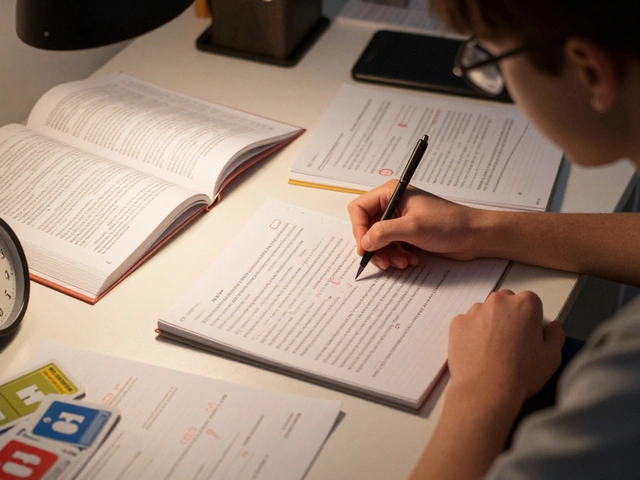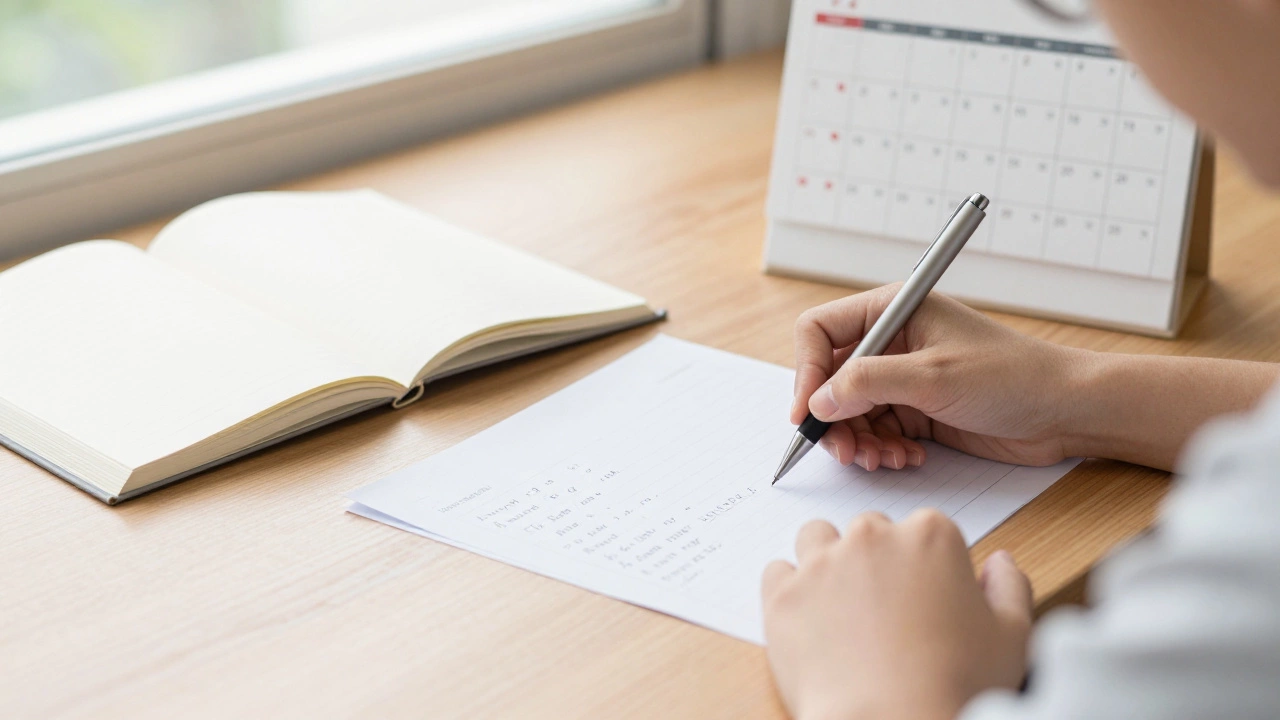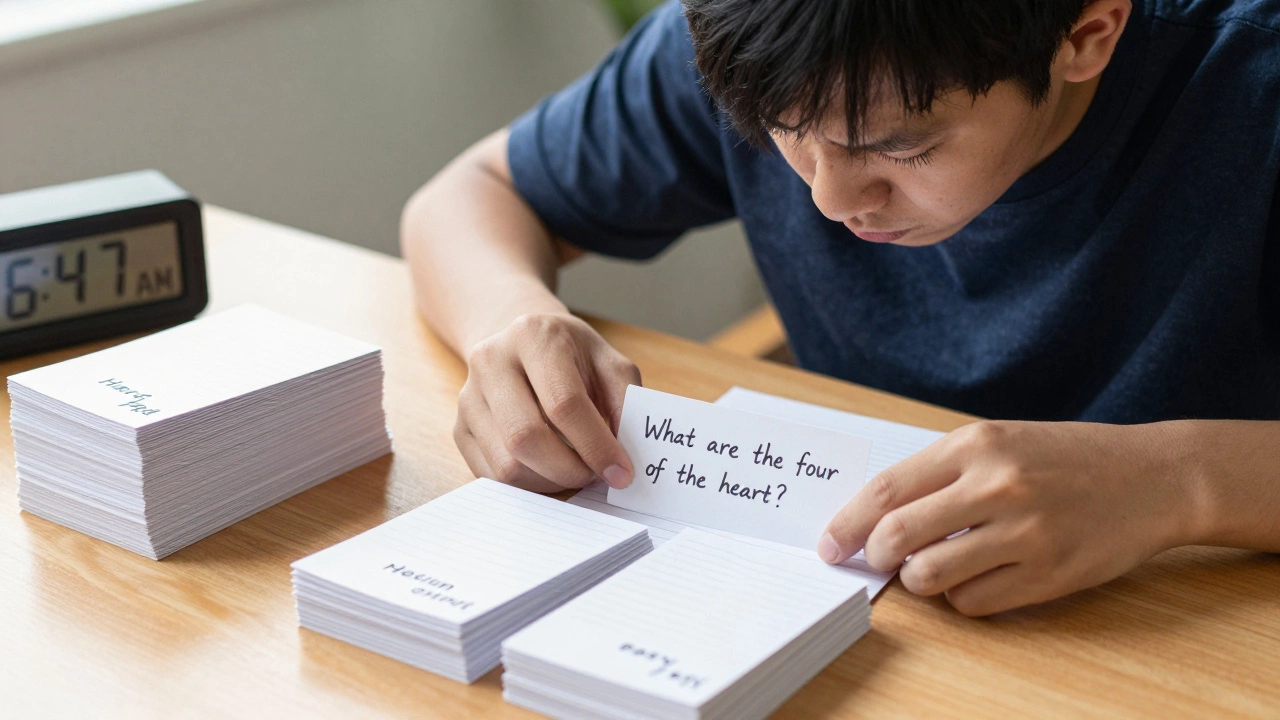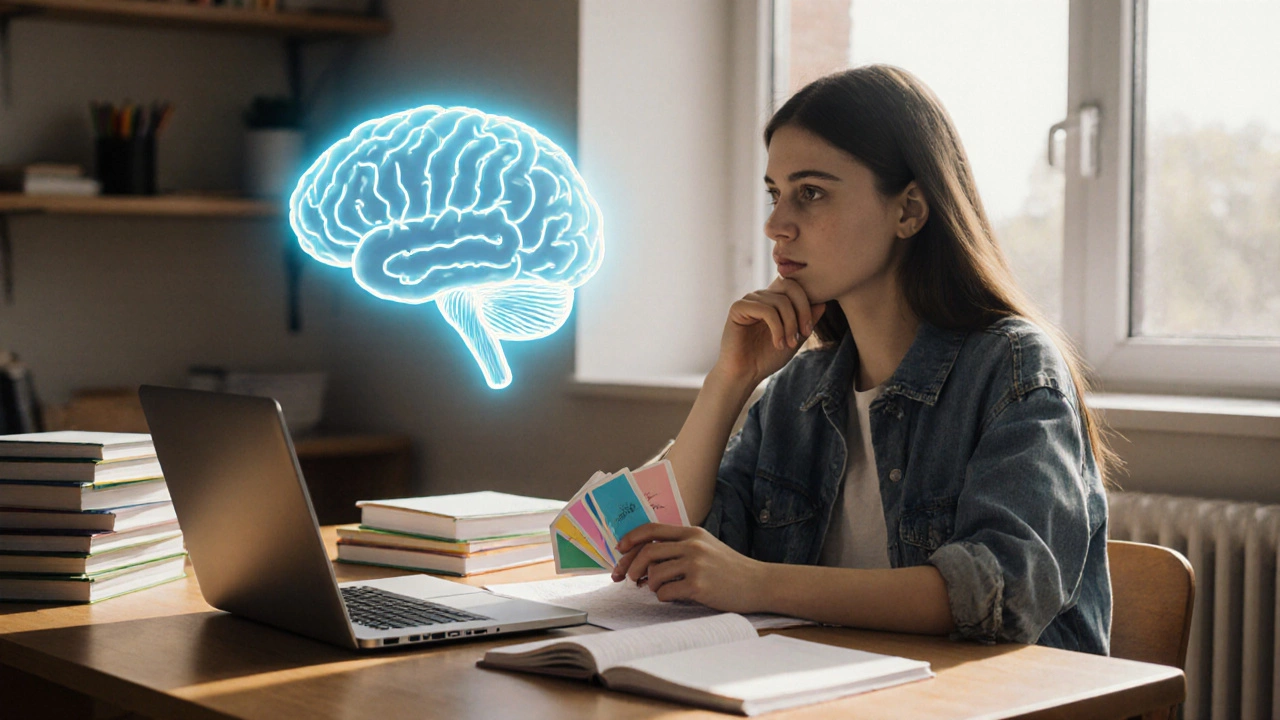Exam Preparation: Simple Strategies to Ace Any Test
Feeling the pressure before a big exam? You’re not alone. The good news is that a few focused habits can lift your performance without blowing up your schedule. Below you’ll find clear steps that tackle the mental, physical, and practical side of test‑day readiness.
Last‑Minute Prep that Works
Thirty minutes before you walk into the room is the sweet spot for a quick mental reset. First, take three deep breaths – inhale for four seconds, hold for two, exhale for six. This steadies your heart rate and clears the fog of anxiety. Next, run through a one‑page cheat sheet of the core formulas or concepts you’re most likely to need. Keep it short; the goal is to trigger recall, not cram new info.
While you’re reviewing, sip water. Dehydration can sap concentration and cause headaches. A single glass (about 250 ml) is enough to keep your brain humming without making you need a bathroom break mid‑exam. Finally, stand up, stretch your arms overhead, and roll your shoulders. A quick stretch releases tension in the neck and upper back, areas that often tighten up when you’re nervous.
Fuel Your Brain with Food and Supplements
What you eat the day before and the morning of the exam matters more than you think. Skip sugary snacks that cause a spike‑then‑crash in energy. Instead, opt for protein‑rich foods like Greek yogurt, boiled eggs, or a handful of nuts. Protein supplies a steady flow of glucose to the brain, keeping focus sharp for longer periods.
If you’re looking for a drink that actually helps memory, try a cup of green tea blended with a splash of lemon. Green tea provides L‑theanine, which promotes calm alertness, while lemon supplies vitamin C that supports neurotransmitter function. For a sweeter option, blend a banana with a spoonful of peanut butter and a dash of cocoa powder – you get potassium, healthy fats, and a mild caffeine lift.
Vitamins can give you an extra edge, too. B‑complex vitamins (especially B6 and B12) aid in producing brain chemicals that affect mood and concentration. A daily multivitamin that includes zinc and magnesium can also help reduce stress‑related fatigue. You don’t need a pharmacy haul; a good quality supplement once a day is enough.
Beyond food, a short physical break can reboot your brain. A five‑minute walk around the room or a set of jumping jacks raises blood flow, delivering oxygen to the cortex where decision‑making happens. Pair that with a quick mental game – name as many capital cities as you can in 30 seconds – to sharpen retrieval speed.
Putting these habits together creates a routine that feels natural, not forced. Start the day with a balanced breakfast, hydrate, run your quick review, stretch, and then head to the exam feeling prepared and calm. You’ll notice that confidence grows not because you memorized everything, but because you built a reliable process you can trust.

















